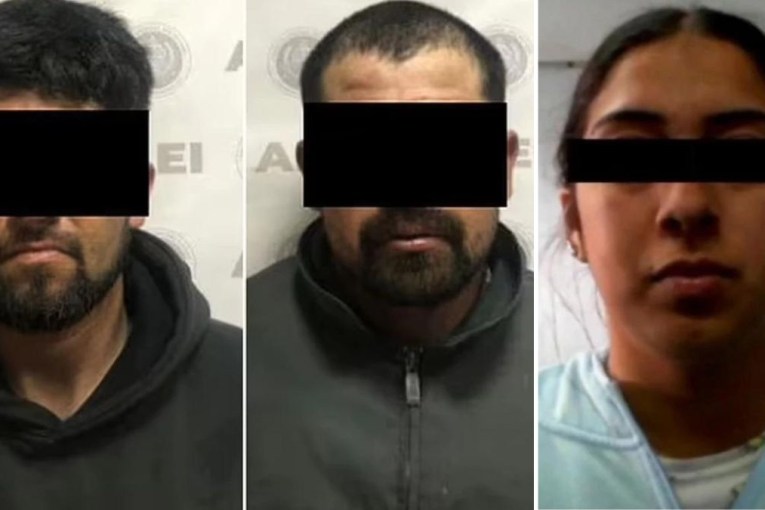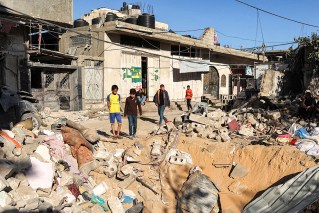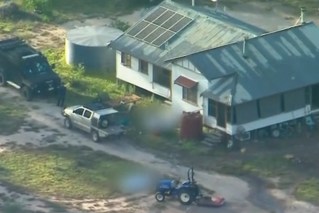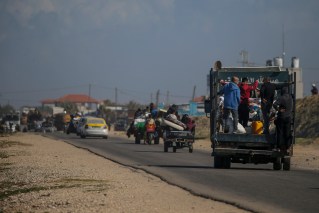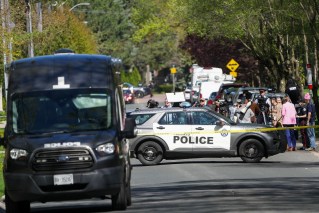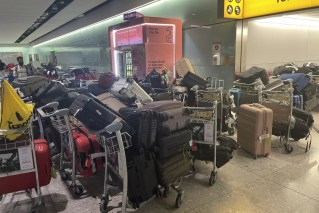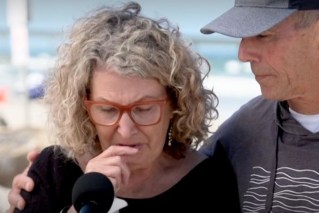Refugees doused in tear gas during border clash
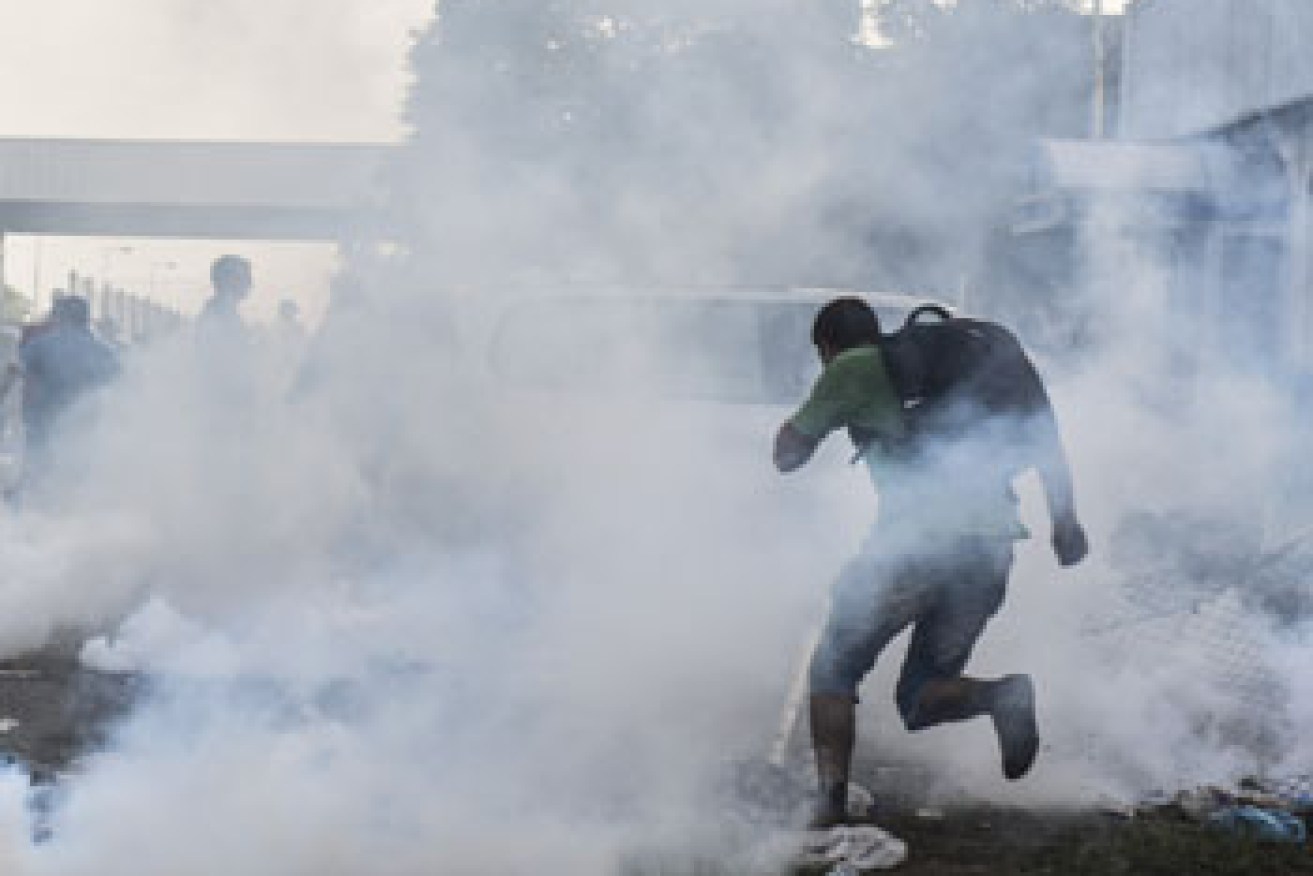
Getty
Hungarian police have fired tear gas and water cannon at protesting asylum seekers demanding they be allowed to enter from Serbia as a border crackdown by Budapest turned violent.
Thick black smoke billowed over the area as mainly young male asylum seekers broke up stones and concrete on the road and lobbed them at lines of riot police.
Police, backed by special anti-terrorist units, responded with water cannon and tear gas from the other side of a metal barrier rolled out across the road at the Roszke-Horgos border crossing.
• European refugee crisis explained
• Russia will continue Syrian campaign
• These are the children of the Syrian refugee crisis
“The crowd on the Serbian side became aggressive and threw stones, bottles and sticks at police on the Hungarian side,” a police statement said.
Hungary’s decision to shut the EU’s external border with Serbia this week with a razor wire fence was the most forceful attempt yet by a European country to stop the unprecedented flow of refugees and economic migrants overwhelming the bloc.
It has lead to the arrest of hundreds of asylum seekers who Hungary now says are committing border offences, as well as left thousands of people scattered across the Balkan peninsula seeking alternative ways to reach the EU.
“The police are protecting the border of Hungary and the EU while respecting the law and the principle of proportionality,” the police statement added.

Migrants try to flee from the tear gas. Photo: Getty
Security authorities further defended their actions saying that one of their detainees was a “terrorist”.
Reports from the Serbian side said around 300 out of a group of 500 took part in the protest and confirmed that some were hurling objects at police.
Serbia’s prime minister Aleksandar Vucic called on the EU to react to Hungary’s actions, otherwise it “will find a way to protect our borders and European values as well”.
The border has until now been the main route for asylum seekers, who mainly arrive first by dinghy in Greece and then trek across the Balkan peninsula to reach the EU’s frontier-free Schengen zone, with most bound for Germany.
Those scattered through Balkan countries said they were searching for other routes, possibly through Croatia or Romania, both of which are in the EU though not in Schengen.
“We have passed too much to give up now,” said 43-year-old Mehmed from Damascus, holding his three-year-old daughter after crossing the border into Macedonia from Greece.
“If not Hungary, we will have to find another way. Most probably Croatia and from there we will see.”
